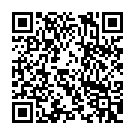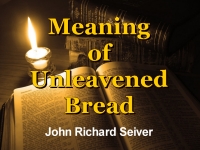Meaning of Unleavened Bread
John Richard Seiver
Unleavened Bread

Well good morning brethren; you know the world's religions have holy days and celebrations that they use to worship their God to celebrate certain aspects of their religious feelings towards their God or gods. In Jeremiah 10:3 God says "the customs of the people are vain" and He goes on to say that "His people are not to learn the way of the heathen" and then He goes on to describe the Christmas tree, of course we all probably recognize that particular passage of scripture...
Transcript of this Sermon coming.
Sermon Date: 1979






